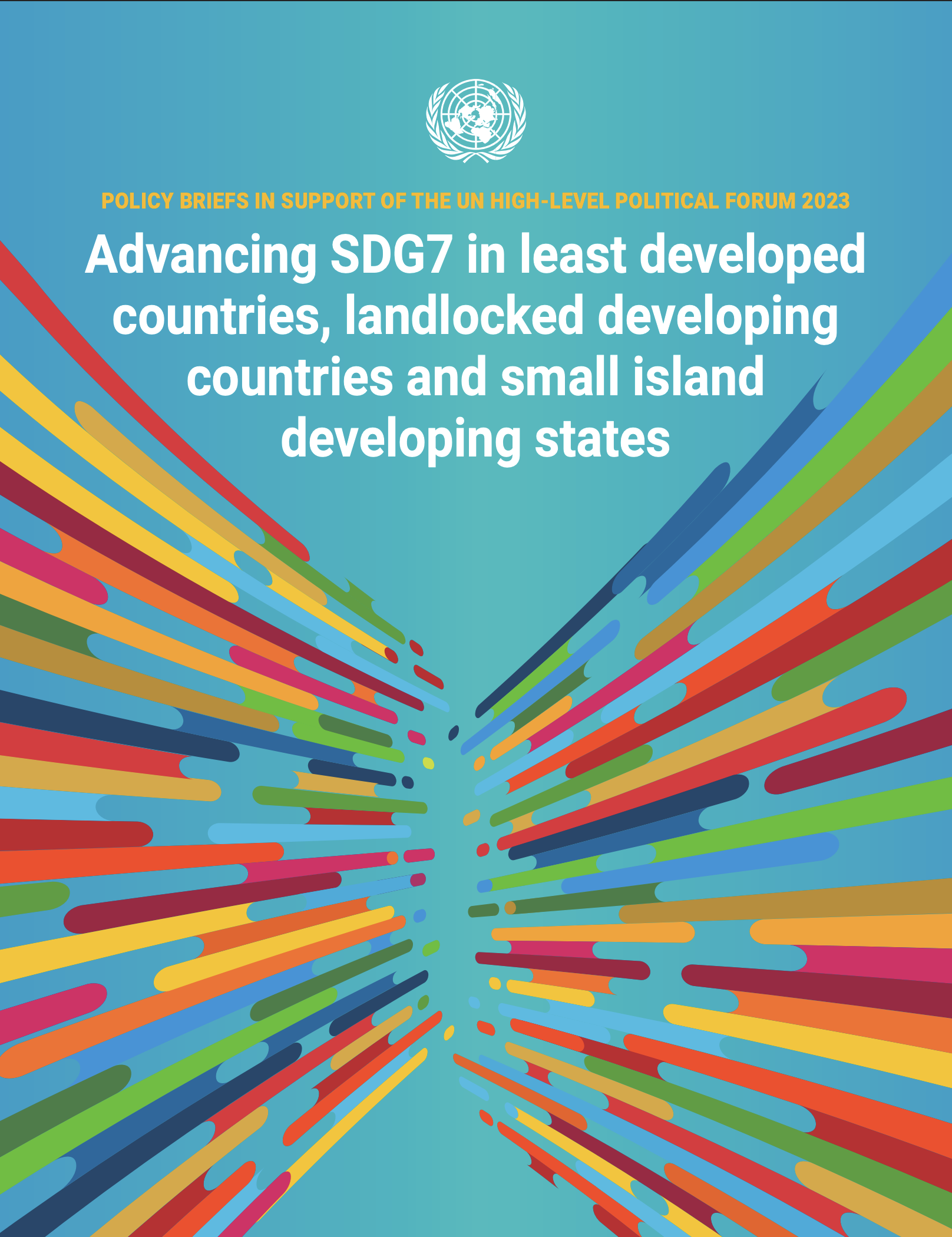Advancing SDG7 in the Least Developed Countries, Landlocked Developing Countries, and Small Island Developing States
Publication Year: 2023 Publisher: UNITED NATIONSBackground
Urgent international attention is needed to address the inequalities in access to sustainable energy that are faced by the least developed countries (LDCs), landlocked developing countries (LLDCs) and small island developing states (SIDS). Unless efforts are scaled up significantly in these countries, the world will fall short of its target of universal access to affordable, reliable and modern energy services by 2030.
Supported by technological leapfrogging, faster deployment of renewables in the LDCs, LLDCs and the SIDS can help bridge the sustainable energy access gap, strengthen energy security and support climate goals. A major shift in strategy is required, however, to significantly increase these countries’ access to accessible and appropriate financing and support clean or low-carbon energy initiatives. In this regard, public finance remains crucial to de-risking and crowding-in private sector investment, bringing new markets to maturity in the LDCs, LLDCs and SIDS.
Currently, international public finance in support of energy is still concentrated in a few countries and on larger projects. Therefore, a concerted effort is needed by developed countries, governments and
international organizations to support local enterprises in the LDCs, LLDCs and SIDS, particularly smalland medium-sized enterprises, off-grid developers and organizations led by women. This can support the development of new products and technologies, address inequalities and narrow the gap in access to electricity and clean cooking between countries, as well as within them.
Accelerating access to reliable, affordable and modern energy services should be a key element in the new 10-year programmes of action for the SIDS and LLDCs to be adopted in 2024.

